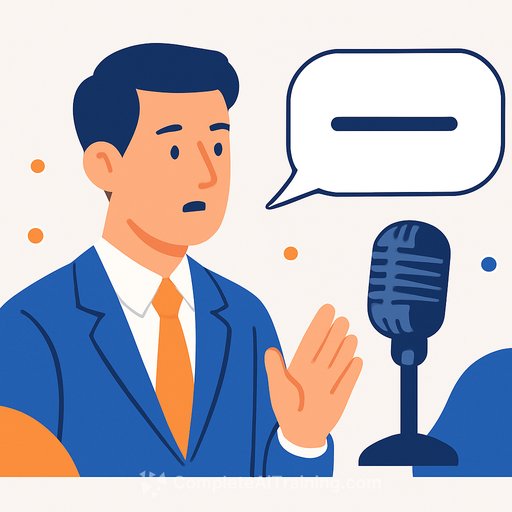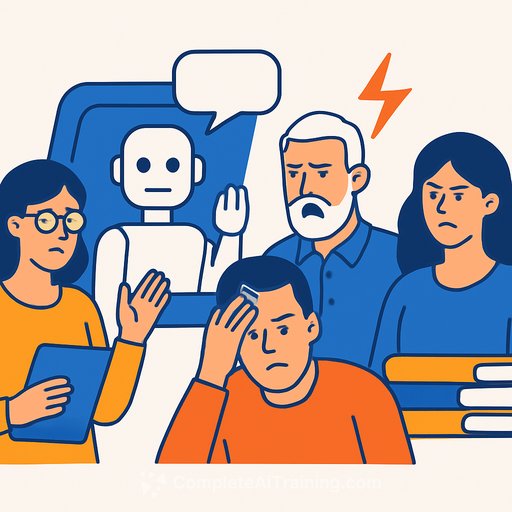Writers and AI: Why Australia's copyright push matters right now
On 22 October 2025, the Australian Society of Authors (ASA), the Australian Publishers Association (APA), and a coalition of authors presented to a Senate committee at Parliament House. The message was clear: protect copyright and protect creators' livelihoods as artificial intelligence becomes embedded in publishing workflows.
If you write for a living, this isn't abstract policy talk. It's your income, your rights, and your voice on the line.
What's at stake for writers
AI systems are trained on vast amounts of text. Without strong rules, your work can be ingested without your consent, credit, or compensation. That erodes licensing income, undermines bargaining power, and muddies attribution.
There's also confusion in contracts. Some publishers, platforms, and clients are slipping in broad AI permissions. Others are pushing for blanket warranties you can't realistically meet. Clarity is overdue.
The core principles likely on the table
- Consent: No use of a writer's work for AI training or synthetic outputs without explicit permission.
- Credit and provenance: Reliable attribution and traceability when models or tools draw from identifiable works.
- Compensation: Fair licensing options and revenue-sharing mechanisms when creative work fuels AI systems.
- Transparency: Clear disclosure about datasets, model use, and any generative tools applied in production.
- Enforcement: Practical takedown pathways, penalties for misuse, and speedy dispute resolution.
What you can do right now
- Audit your catalog: List what you own, what's licensed, and where your work appears online.
- Strengthen notices: Add copyright notices and usage terms on your site and file headers. State your AI policy (e.g., "No data mining or model training without written consent").
- Tighten submissions and pitches: Include a brief rights statement in your email footer and pitch docs.
- Use contracts, not vibes: Put AI permissions in writing. If there's no clause, add one or clarify by email before accepting.
- Set alerts: Track your name, book titles, and unique phrases. Save evidence when you find misuse.
- Join your guild: Membership bodies share updates, model clauses, and action alerts you'll miss otherwise.
Contract language worth adding (or asking for)
- Consent for AI training: "No use of the work for training, fine-tuning, or dataset creation without express written permission."
- Use boundaries: "No synthetic works in the author's name or style without approval."
- Disclosure: "Counterparty must disclose any generative tools used in editing, production, or distribution."
- Reporting: "Provide timely reports of all formats, platforms, and AI-related uses."
- Compensation: "Separate fees for any AI training license or synthetic-use rights."
- Indemnity and takedown: "Cooperate promptly on enforcement and remove unauthorized uses on notice."
Using AI without risking your rights
You can work with AI and still protect your IP. Keep your drafts private unless you're comfortable with the tool's training policy. Don't paste client material into public models. Treat prompts and outputs as work product you need to track and attribute.
- Keep a log: Save prompts and outputs tied to each assignment.
- Disclose when relevant: If a client asks, be upfront about tools used and what you edited.
- Protect your voice: Use AI for structure or options, then rewrite in your own words.
If you want structured practice using AI safely for writing workflows, explore role-specific training here: AI courses by job.
Where to follow updates and get help
Policy will keep moving. Don't wait for a headline to find out what changed. Bookmark these:
- Australian Society of Authors - member advice, template clauses, advocacy.
- Australian Government: Copyright - plain-English guidance and resources.
Bottom line
This moment is about consent, credit, and pay. The sector is pressing for rules that respect author rights. Your part is to lock down your terms, watch your rights, and keep your contracts crystal clear.
Your membership also unlocks:






